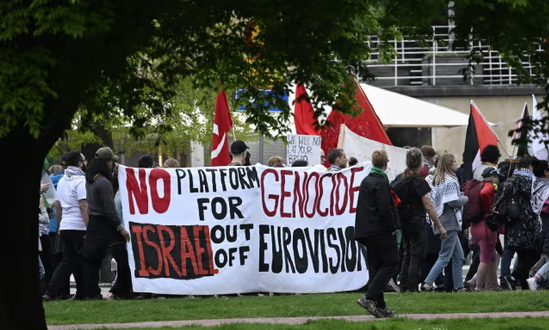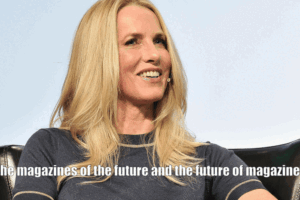Eurovision struggles to keep politics out as Israel controversy hits Malmö
The official motto of the 68th edition of Eurovision is “united by music”, but as the continent’s beglittered and sequined masses descended on the Swedish city of Malmö for Saturday’s grand final, music’s ability to heal and bridge divides was looking in serious doubt.
In the run-up to the song contest’s main event, the Netherlands’ performer Joost Klein missed his slot in two dress rehearsals after being put under investigation by the European Broadcasting Union (EBU) due to an unexplained “incident”.
“We are currently investigating an incident that was reported to us involving the Dutch artist. He will not be rehearsing until further notice,” the EBU said in the statement.
At a press conference on Thursday night, several performers, including Klein, had signalled their frustration that the debate around the inclusion of Israel – guaranteed after the singer Eden Golan qualified at the semi-finals – was likely to overshadow the world’s largest live music event.
Klein, who is due to perform just before Golan on Saturday night, was asked at a press conference if his gabber-infused pop anthem to free movement, Europapa, could live up to the competition’s unifying motto. He said pointedly: “I think that’s a good question for the EBU.”
In March, the association of broadcasters ruled that Israel was allowed to compete as long as it changed the lyrics to its entry, then called October Rain, about the trauma of the Hamas massacre on 7 October.
The EBU has defended its decision by saying Eurovision is “a non-political music event” and “not a contest between governments”.
Golan, 21, had been ordered by Israel’s national security agency to stay in her hotel room between performances and was ushered to dress rehearsals in a convoy of cars. At the lineup of semi-finalists, she cut a forlorn figure near the stage exit, not least because the other participants did not appear willing to volunteer gestures of solidarity.
When a Polish journalist asked Golan if she had considered that her presence at the contest might be endangering the other acts and the attending fans, there were murmurs around the auditorium and the host intervened to say she did not have to answer the question if she did not want to. “Why not?” interjected Klein, who sat next to her, a Dutch flag draped over his head.
The Greek performer Marina Satti also appeared to mimic falling asleep when Golan was asked a question by Israeli press.
Bambi Thug, a non-binary singer representing Ireland at this year’s competition, said the debate around Israel’s inclusion had “completely overshadowed everything”.
“It goes against everything that Eurovision is meant to be,” they said.
The group of performers gathering at Eurovision was “a big, big community” and Israel’s contestant Golan “was never allowed to even meet us”, they added. “God forbid we have some conversations where minds might be changed.”
Bambi Thug, who before Thursday’s first semi-final was made to remove makeup from their body that spelled out the word “Ceasefire” in a medieval Celtic script, said they did not know exactly what happened at the incident for which Klein was being investigated. “But I am with anyone who is pro-Palestine.”


